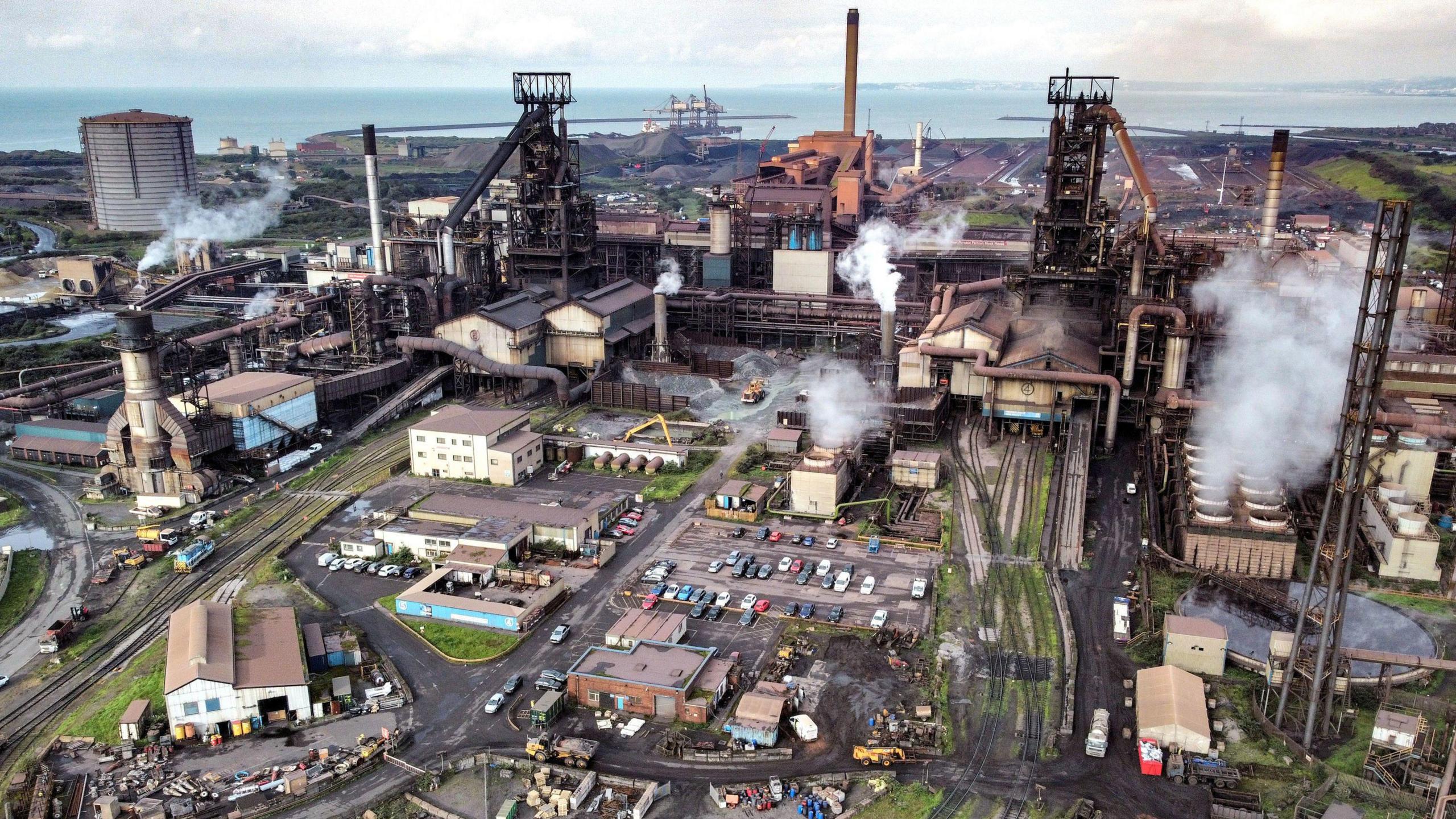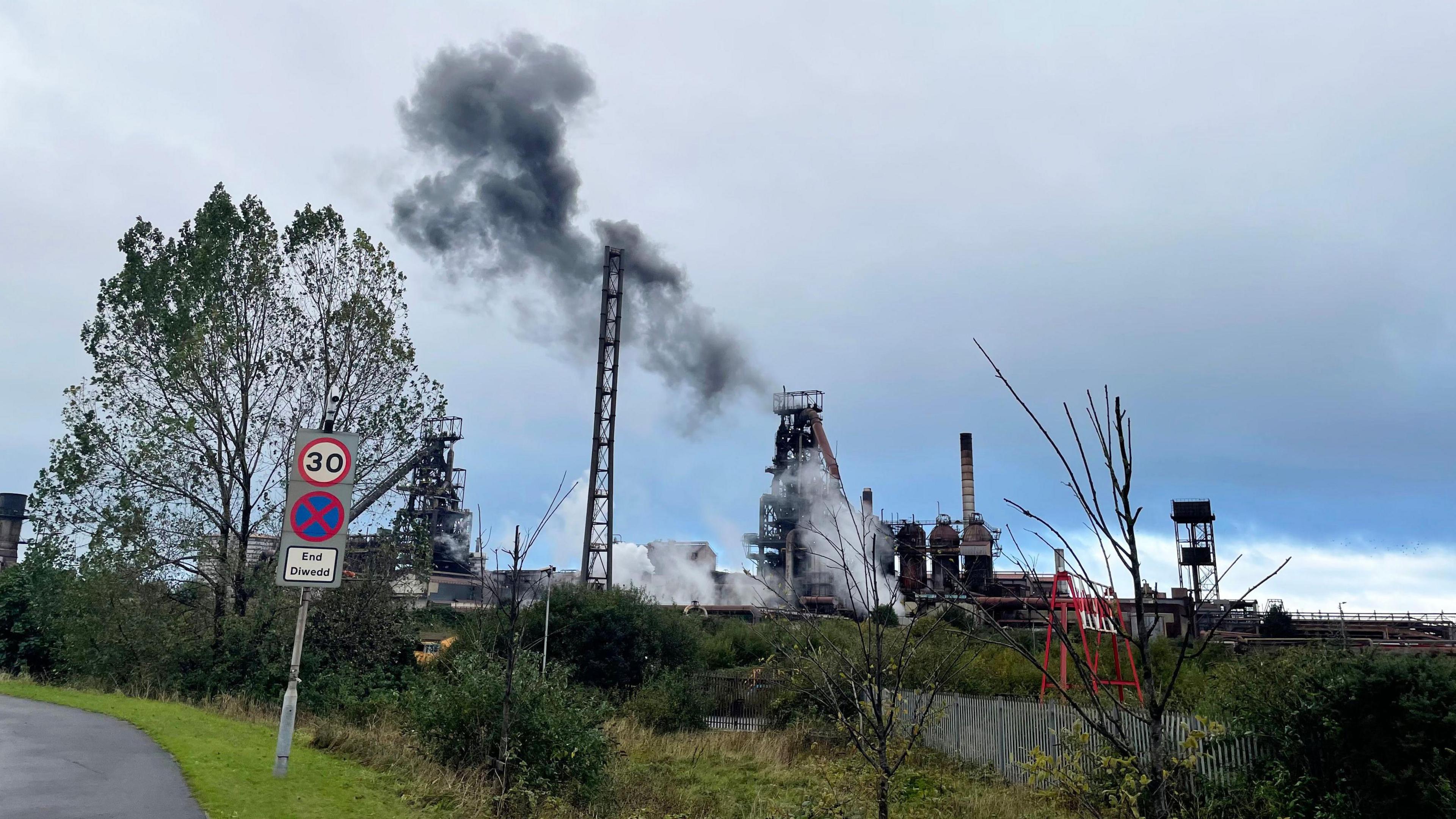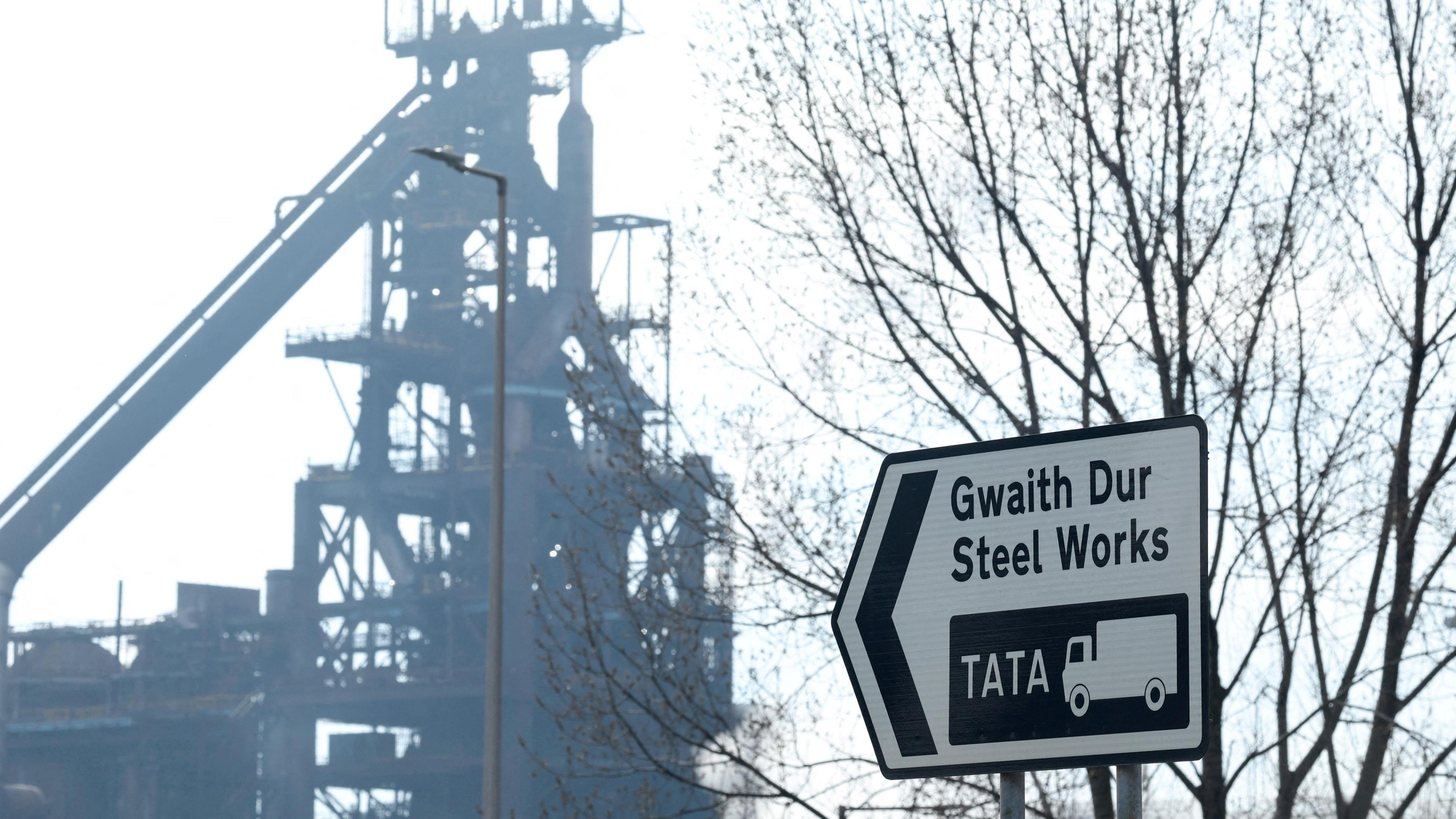Port Talbot: Town says goodbye to traditional steelworks

The steelworks at Port Talbot, South Wales, will see huge changes over the next few months and years
- Published
The UK's biggest steelworks - a factory where steel is made using traditional methods - has shut down production after more than 100 years, leading to thousands of job losses across South Wales.
It is a major change for people who live in Port Talbot, where the factory is based.
The final blast furnace, which is a chimney-like structure used in the process of making steel, was shut down permanently on Monday, marking the end of traditional steelmaking in Wales.
The steelworks have provided jobs for the people of the town for over 100 years, so for many, this is being described as the end of an era.
'I can't imagine Port Talbot without the steelworks'
- Published20 January 2024
What steelmaking means to Port Talbot. Video, 00:01:16
- Published31 March 2016
Why is the UK steel industry in trouble?
- Published30 March 2016
Why are the steelworks closing?
Reporter Tomoz Morgan explains why Port Talbot steel plant has shut down
Blast furnaces require huge amounts of energy to run and they create a chemical reaction that produces a lot of waste carbon dioxide into the atmosphere.
This is known to have a negative impact on the environment as carbon dioxide is a greenhouse gas which contributes to global warming.
They are also very costly to run and Tata Steel UK, who own the factory, say they are no longer fit for purpose.
What does this mean for the local people?
Young people in Port Talbot tell Newsround about their community
Tata Steel is replacing the old furnaces with a greener electric arc furnace, that produces steel in a far less carbon-intensive way, but it will not be fully ready until 2028.
The move will cost £1.25bn, £500m of which is being paid by the British government and will lead to nearly 3,000 job losses, almost 75% of the workforce.
When the job cuts were announced in January, Tata Steel's boss said the company would help workers to retrain and find new jobs.

Huge plumes of smoke can be seen coming from the Tata Steelworks in Port Talbot
The move has created uncertainty for both those who work at the steelworks and those in other industries.
Geraint Williams, a professor in Materials Science and Engineering from Swansea University, said the closure of Port Talbot's furnaces, and the expected closure of the UK's last remaining blast furnaces in Scunthorpe, signalled a major change in the country's industrial history.
He added: "Great Britain is the birthplace of the industrial revolution, so it's very surprising that - eventually - we will lose the ability to produce steel from scratch."
What was the industrial revolution?

The UK government has committed £500m towards the cost of new technology in the area, with construction at the existing site set to begin in August 2025
The Industrial Revolution, which took place between 1750-1900, was a period of great change in Britain.
There were huge technological advances which had an impact on every aspect of life.
During this time, steel became a hugely important material for building railway tracks, bridges and buildings.
Due to it's fast-moving rivers which provided power via water wheels, Sheffield became the centre of steelmaking.
Other factories were eventually built in Scunthorpe in Lincolnshire, Teeside in the North East of England and Port Talbot in South Wales.
The steel industry brought jobs and money to these towns and cities, but along with that, came a negative impact on the environment in the areas.
